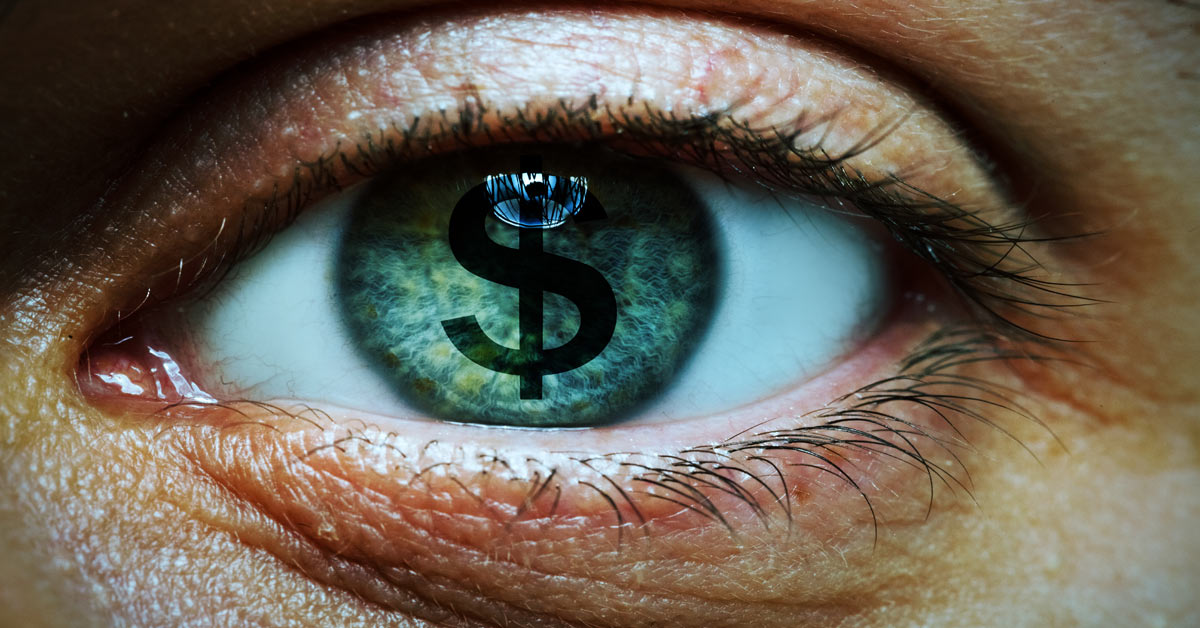

Have you ever wondered why we exist? Have you ever thought about the existence of humanity and our place in the universe? Do you find yourself constantly going back and forth pondering this idea? Does it leave you feeling confused and unfulfilled? Then you might be going through what’s known as an existential crisis, or similarlary, a mid-life crisis, or a quarter-life crisis.
As we navigate our life, it’s completely normal to pause for a moment and reflect on existence. The good news is that this is not a negative event, though it can be uncomfortable.
When we begin to ponder meaning, existence, and purpose in the universe, we align with our internal vibration and begin to do a bit of soul searching.
This allows us to fully understand ourselves more, get in touch with who we are, and how we want to live our lives. Let’s explore existentialism and how we can best navigate our lives.
Sooner or later most individuals struggle with an existential crisis. Most often it comes from pondering their purpose in life.
Through regular routines and monotonous work environments, we can become easily dissatisfied with our lives, and begin to wonder why we keep working so hard? Where is this all heading? What do I get from life after all this work?
From this stems many meaningful and deep questions, such as:
-What is existence?
-What is my purpose?
-Why do I exist?
Existential thoughts begin to arise and the individual ruminates on all sorts of personal questions.
What is the meaning of life? Why go on living? These existential thoughts can be explained by Maslow’s Hierarchy of needs.
Abraham Maslow’s hierarchy explains that people are motivated by five basic needs. Those are psychological, safety, love, esteem, and self-actualization. In the last part, self-actualization is the portion of the existential crisis that deals with discovering your purpose.
So, what is existentialism? Existentialism is a branch of philosophy that deals with the nature of human existence. It’s a philosophy with its roots in the subjective points of thinking, feeling, purpose, and living a life on our terms free from the barriers of external thinking.
Existentialists believe that there is no fixed design or a universal creator. They believe that meaning is found through embracing existence.
Basically, individuals are free and responsible for their own lives. It’s a philosophy about embracing free will.
The philosophy of existentialism began in Europe with the new thought movement and became popularized by great thinkers such as Nietzsche, Sartre, Camus, and Kierkegaard.
They proposed that individuals are independent conscious beings capable of great things, without the labels, roles, and limitations that society puts on us.
It is a philosophy of empowerment and independence. Nietzsche proposed through this philosophy and Nihilism that it is the key to superhuman strength.
Going through an existential crisis can cause uncomfortable feelings, unfortunately. it can make you feel lost and depressed. Your general mood becomes one of melancholy.
People experiencing an existential crisis feel like they don’t know who they are anymore. They feel a sense of powerlessness and struggle to find motivation. This has become a global phenomenon consuming people in record numbers.
At this time we experience feeling empty. This can often come from the emotions of insignificance. The universe is so big and it’s easy to feel small. There is a need for acceptance.
This creates insecurity within ourselves. When we’re born and experience the world at a young age, we enjoy the pleasures and adventures the universe has to offer.
We simply love climbing trees and running through fields.
It’s not until we get older and have personal responsibilities that we really start to question everything.
Learning how to deal with existential crisis feelings will help us grow eventually, but is very challenging in the meantime.
We stop having fun and begin to take a more objective mental approach towards how we spend our time and how we fit in now.
When we’re young there is a feeling that the universe is always working for us and not against us. The universe is our friend and provider.
When we’re older we’re faced with new challenges and financial responsibilities and life gets more complicated. There is more societal and personal pressure to be a provider and do something with our life.
The playful relationship with the universe has ended and begins to feel like it is working against us. We start to feel things forced upon us. Other people now control our time.
Other people now control our lives. This will make us feel a large sense of powerlessness. It’s no longer about fun and more about how we fit into this experience.
Does it all feel worthwhile now? Many going through an existential crisis don’t feel it is.
Some people don’t suffer from existential thinking and can easily get on with their lives. No matter what they’re going through they can focus easily on their tasks and just move onto the next thing.
When you’re in the middle of an existential crisis however, it takes over your whole life. You constantly feel different. You constantly ponder existence and the vastness of everything.
Because it’s such a loaded experience to go through you’re left with a perpetual feeling of emptiness and powerlessness. This becomes a part of your daily makeup, and it's important to learn how to build emotional resilience.
You start to act and feel completely different all the time.
Going through an existential threat has a tendency to put your life in a rather harsh perspective.
In the grand scheme of the universe, whatever big accomplishments we achieve in our lives have a way of becoming insignificant and small in comparison.
We think, what have I really done that has made a difference in the world? Many feel this way.
However, those going through existential dread feel even worse because the meaning in everything is less.
The problem is that we compare our accomplishments to the greatness of the universe. How can anyone compete with that?
Though this may seem counter-intuitive, a personal crisis can actually be a good sign for you. As Nietzsche put it “what doesn’t kill you makes you stronger.”
Going through the experience of analyzing and figuring out yourself and your role in the universe, as hard as it can be, will only create more growth and personal enlightenment.
You become more intimately connected with yourself. You begin exploring your inner truth and can start discovering your purpose in life.
The metamorphosis you experience can be a positive one if you allow yourself to be open to the process. You can change your perspective to a newer healthier one where you learn to embrace the darkness, and appreciate it.
You realize there is no good without the bad. When you learn this and begin to accept it, you become stronger. As a result, you become more resilient and more empowered. What once seemed impossible to get over now becomes a thought of the past.
This is an opportunity to learn and grow. Discover your values, your meaning, your passions, and your motivations.
When we discover our existential purpose, we can begin the healing process. Our space in the universe seems a little bit bigger and we start feeling more content. We no longer feel that our energy is being drained. Here are some ways to find your purpose and overcome your existential crisis.
Being a grateful person is the key to happiness. When we are more grateful in life, we don’t have the need to acquire more things for happiness.
We are just naturally appreciative of everything. So, we should start paying more attention to our gratitude. We need to schedule it like any other task during the day because it is just as vital.
Making a gratitude journal is the best way to start your gratitude journey.
If you don’t know how to journal, that’s alright. There’s not much to it. Just start writing what you’re grateful for and why. Let it all just naturally come out and don’t think too much about it.
The most optimal times to journal are early in the morning when you're alert and focused, and in the evening right before bed.
You may be a bit more tired from the day, but you’re reaffirming your thoughts right before you go into rem sleep, when your subconscious mind really starts to go to work. So, make it positive and uplifting!
Getting away is a fantastic way to clear your mind and connect with nature. You can begin to appreciate the beautiful simplicity of the universe again.
Stand in awe of a beautiful forest or waterfall. Put all distractions away like your phone or tablet, and just learn to be with yourself outdoors. Reconnect with your soul and your inner child.
Take a run in nature. Build a fire. Roast marshmallows and sing songs around the campfire.
When we can get back to our primal nature and just learn to be, we become more self-aware. Clarity starts to arise and we no longer experience the blockages of societal pressures, limitations, and distractions.
We get outside of ourselves and can see our problems from a distance rather than feeling like we’re stuck in a hole that we can’t get out of. Connect with nature and connect with yourself.
An existential crisis can have detrimental effects on our mindset and emotions. We need to start taking it easy on ourselves. Self-care is very important during this process.
To overcome the melancholy and the confusion we must practice some self-love. There are many ways we can do this.
As we’ve discussed, going through an existential crisis is an opportunity for self-development and self-awareness.
Getting in touch with who you are and finding your true passion in life as well as your existential purpose will help to remove the fog of all the confusion.
It’s time to get clear on what you want from life as well as what you want to do with your life. If you need help with this, self-hypnosis is a great way to get started.
Get clear on your interests and your passions. Remember the activities from earlier in your life that you enjoy doing. Wake up in the morning with a sense of purpose and happiness. Following your passion and purpose is the most satisfying and fulfilling way to live your life.
This hypnosis can help you to dive deep into your subconscious mind and find your true passion.
